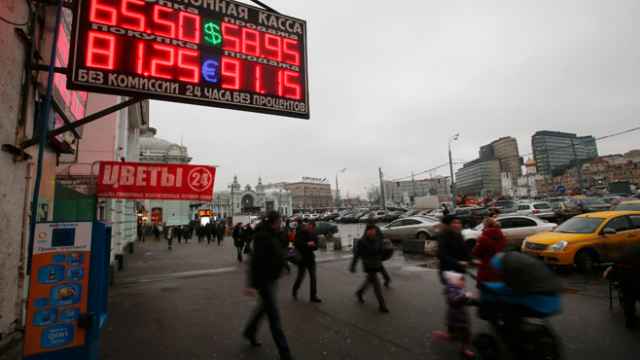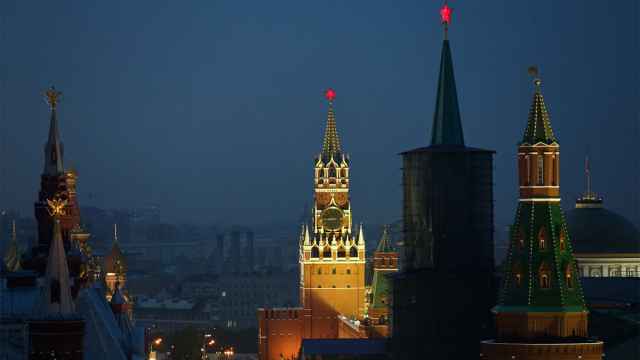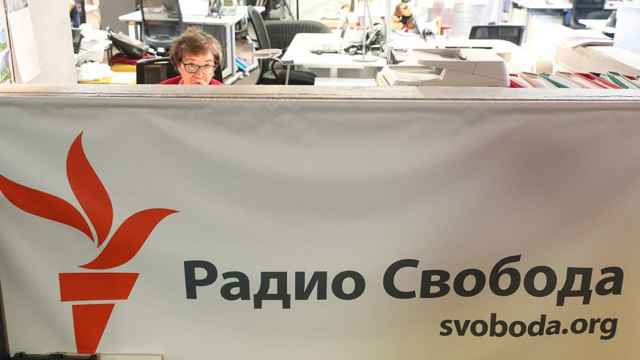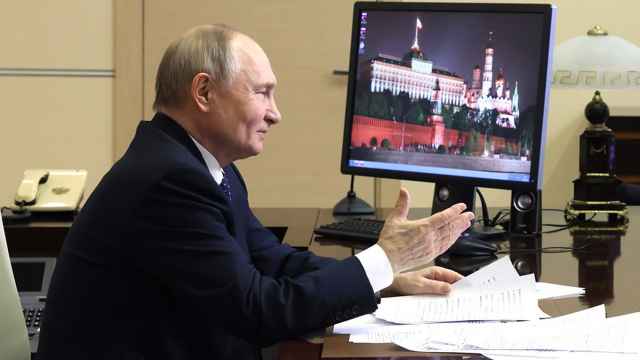Currency exchange desks across the country were sucked dry of U.S. dollars and euros on Wednesday as Russians scrambled to turn their rapidly depreciating rubles into stable foreign cash, media outlets reported.
Reports that some bank tills had been emptied of foreign currency washed in from across the country as the ruble strengthened steadily after two days of spectacular falls.
"We don't have any foreign currency today, it's all run out. We are ordering [more] for tomorrow, but we don't know yet whether they'll be for sale," a cashier at one exchange point in Moscow told news agency RIA Novosti.
Several banks in the Russian regional capitals of Rostov-on-Don, Chelyabinsk, Khanty-Mansiisk and Tyumen also ran out of foreign currencies, news agency Interfax reported.
"We can offer [hard currency] only if someone sells it to us" said a cashier at a Russian Credit bank in Rostov-on-Don.
Even big players were affected: National banking giant Sberbank's outlets in Ulyanovsk reported that they too had run out of hard currency. Many banks in the far-eastern city of Vladivostok had also run out of dollars or euros, including one Sberbank, RIA Novosti reported.
On Monday the ruble went into free fall, by Tuesday afternoon slumping 25 percent against the U.S. dollar to hit 80 rubles to the dollar and 100 to the euro in its fastest falls since Russia's 1998 economic crisis. By Wednesday evening the ruble had nearly returned to its Monday morning levels.
The Russian currency is down more than 40 percent against the greenback since January.
As dollars become scarcer, they have also become more expensive. On Wednesday, some banks in Moscow offered dollars at 77 rubles each and euros at 100 rubles each, far above the Central Bank's official Wednesday exchange rate of 61.15 rubles to the dollar and 76.15 rubles to the euro.
Still, some in Russia are holding off on handing in their rubles for dollars. One young woman from Uzbekistan interviewed by The Moscow Times on Wednesday said she hadn't exchanged her rubles yet because "everyone says that after New Year's [the U.S. dollar] will get cheaper."
Contact the author at s.skove@imedia.ru
A Message from The Moscow Times:
Dear readers,
We are facing unprecedented challenges. Russia's Prosecutor General's Office has designated The Moscow Times as an "undesirable" organization, criminalizing our work and putting our staff at risk of prosecution. This follows our earlier unjust labeling as a "foreign agent."
These actions are direct attempts to silence independent journalism in Russia. The authorities claim our work "discredits the decisions of the Russian leadership." We see things differently: we strive to provide accurate, unbiased reporting on Russia.
We, the journalists of The Moscow Times, refuse to be silenced. But to continue our work, we need your help.
Your support, no matter how small, makes a world of difference. If you can, please support us monthly starting from just $2. It's quick to set up, and every contribution makes a significant impact.
By supporting The Moscow Times, you're defending open, independent journalism in the face of repression. Thank you for standing with us.
Remind me later.






